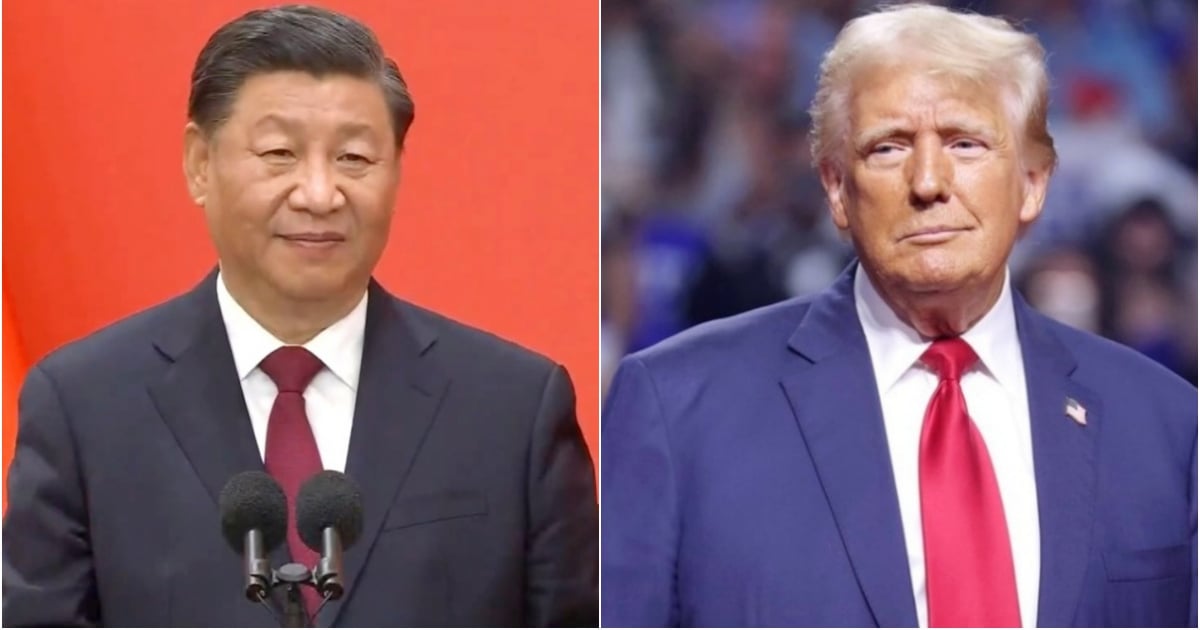In a significant shift that has brought relief to international markets, Donald Trump announced on Tuesday a "substantial" reduction in tariffs on Chinese imports. He also confirmed he has no plans to remove Jerome Powell, the Chairman of the Federal Reserve. This dual announcement marks a change in tone from the U.S. President on two of the most contentious aspects of his economic policy: relations with the central bank and the trade war with China.
Both of these issues had stirred uncertainty among investors, leading to a significant withdrawal of capital from U.S. markets earlier this week. Regarding the Federal Reserve, Trump clarified he has no "intention of firing" Jerome Powell, despite his repeated criticism of the central bank's interest rate policies. The President expressed his desire for Powell to be "a little more aggressive" in reducing rates, seeing it as "the perfect time to do so," according to a report by the EFE news agency on Wednesday.
He even downplayed his previously aggressive rhetoric: "If he doesn't, is it the end of the world? No," he stated, easing tensions after previously labeling Powell a "big loser."
From Tariff Escalation to De-escalation
In the context of the trade dispute with China, Trump surprised many by indicating that the 145% tariffs his administration imposed on numerous Chinese products "will be substantially lowered." While he did not specify an exact figure, he noted that they "won't remain anywhere near that number," though they "won't be zero either." Initially, these tariffs were justified by reasons such as China's role in fentanyl distribution and economic practices deemed unfair by Washington.
China retaliated with equivalent measures, imposing tariffs of 125% on American goods, thereby escalating a trade war that has negatively impacted global commerce. On Wednesday, Chinese President Xi Jinping also spoke out strongly, warning that tariff conflicts "undermine the legitimate rights and interests of all countries, damage the multilateral trading system, and impact the global economic order."
Internal and External Pressures for De-escalation
The push for de-escalation is also coming from within the U.S. government. Treasury Secretary Scott Bessent remarked at a private event that the current tariffs "amount to a reciprocal trade embargo" and expressed confidence that tensions would gradually ease. According to a source present at the event, Bessent sees "a de-escalation in the near future."
Howard Lutnick, the U.S. Secretary of Commerce, has also advocated for a "tariff truce," positioning himself against the more hardline approach promoted by Peter Navarro, one of Trump's closest advisors on trade issues. Meanwhile, White House spokesperson Karoline Leavitt emphasized that the government is "doing very well regarding a potential trade deal with China." According to Leavitt, "the President and the administration are setting the stage for an agreement," as "the ball is moving in the right direction."
Economic Consequences and Fed's Position
The trade tensions have had tangible effects on economic forecasts. Federal Reserve Chairman Jerome Powell has repeatedly warned that the trade war could pose a significant drag on the U.S. economy. The International Monetary Fund (IMF) has revised its U.S. growth projections downward, placing growth at 1.8% for this year, a decrease of 0.9 percentage points from its previous forecast.
Powell, whose second term ends in May 2026, has chosen a cautious strategy in the face of this dilemma: while an accelerated interest rate cut could stimulate the economy by making credit more accessible, it also carries the risk of higher inflation, especially if high tariffs remain in place.
FAQs on Trump's Economic Policy Shifts
What changes did Trump announce regarding tariffs on Chinese imports?
Trump announced a "substantial" reduction in the tariffs on Chinese imports, although he did not specify the exact figures.
Has Trump decided to keep Jerome Powell as Chairman of the Federal Reserve?
Yes, Trump clarified that he has no intention of dismissing Jerome Powell, despite previous criticisms.
How have the trade tensions affected the U.S. economy?
The trade tensions have led to a downward revision of U.S. economic growth projections, with the IMF forecasting a growth rate of 1.8% for this year.
